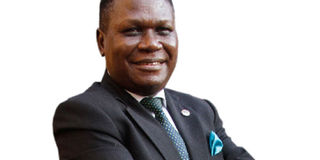Sloppy journalism and how I ended up with my foot in my mouth

The story stood out in the pages of Daily Monitor. US ambassador reportedly called Acholi youth “lazy.” I read the story and re-read it. Coming from the paper that pledges truth every day, I had no reason to doubt the story.
I know ambassador Malac as a no-nonsense diplomat, but I have never known her to speak recklessly. True, she can make a bold statement, as she did alongside other Western diplomats when she walked out of President Museveni’s sixth swearing-in ceremony after he called the International Criminal Court “a bunch of useless fellows.”
However, she is known to choose her words carefully. Anyone who has ever listened to her would agree with me.
I was convinced that she had said what the paper reported her to have said. So I put pen to paper after reading Daily Monitor’s account of her speech to the youth. I took the reported indictment of the youth very seriously and put forth my opinion. I reasoned that it is not enough to consider their attitude towards work, but rather strive to understand why this attitude persists.
You can now imagine the amount of egg that covered my face when the ambassador distanced herself from the Daily Monitor story. She wrote in the same paper insisting that she never called Acholi youth “lazy.” Given my op-ed I was called out as an accessory after the fact.
Here’s the ambassador in her own words: “Daily Monitor published an article incorrectly asserting that I criticised Ugandan youth over laziness during a speech I recently gave in Gulu. This could not be further from the truth and I never used the word ‘lazy.’
“In a November 3 Daily Monitor op-ed, unfortunately Norbert Mao repeated these false claims. To correct the record, I would like to clarify that my speech in Gulu was all about encouraging youth to harness the incredible potential they have. It was also about the US government’s support and commitment to helping youth take advantage of economic opportunities.”
Naturally, I was disappointed that I had swallowed the news story lock, stock, and barrel and based my opinion piece on it without doing any fact-checking whatsoever. Clearly, the paper goofed. They made a mistake. Unless they can bring a voice recording to support the reporter’s account of the ambassador’s speech.
But that is now water under the bridge. Journalists are human. We don’t have many specialists to ensure that diplomats, or for that matter anybody written about, are not cast in a wrong light based on unchecked facts. Not every media house can afford a diplomatic editor to check facts with foreign envoys! But to err is human. And journalists are human. A journalist upcountry is required to be a jack of all trades. They cover all sorts of subjects. Nevertheless, there reaches a point when it is it is not enough to attribute mistakes to human frailty.
That is how I ended up being an accessory after the fact to an article that misrepresented the envoy. According to our penal laws, “An accessory after the fact to an offence is one who, knowing that a person has been a party to the offence, receives, comforts or assists that person...”
In this case the primary responsibility is with the paper but I also bear secondary responsibility. One could say the paper stabbed the envoy and I twisted the dagger causing an even larger wound.
Ambassador Malac is about to conclude her tour of duty in Uganda. In her time, she made youth programmes the centre-piece of her government’s agenda. I take her word that she wouldn’t deride the youth: The situation I found myself in is commonly called “foot-in-mouth” disease.
It is not a comfortable position to be in. In this era of fake news, the credibility of most news sources has plummeted. Shouting headlines have to be taken with a pitch of salt. It calls for vigilance in the part of the media and the unsuspecting members of the public.




